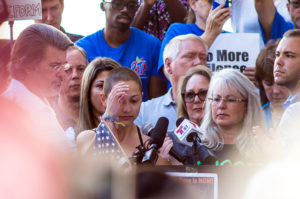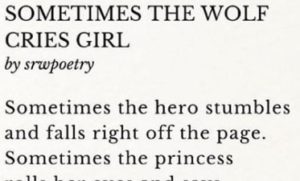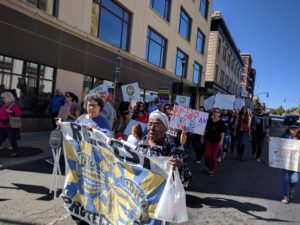The man who lived in The White House from January 2017 to January 2021 took the US from respected world leader to banana republic serving the whims of an incompetent would-be dictator in an alarmingly short time. We are fortunate to have a new leader who is doing his best—though not enough—to undo the damage, and who steadies our foreign and domestic policy at a time when the need for leadership is clear.
But even though DT is out of power despite every crazy attempt to maintain it, his numerous judicial appointments gave the crazies a scary degree of control that persists today.
Which seems to mean that reproductive rights, environmental protections, the right to be protected from contagious lethal diseases, and the right to vote have had big portions chiseled away, while the rights to carry and use firearms, to infiltrate others’ airspace, and the right of corporations to fund candidates and dictate favorable terms have been enshrined.
While DT’s government made up new and undid longstanding laws and regulations with no regard for precedent or separation of powers, Biden’s attempts to return to normalcy, curtail the pandemic, and govern effectively keep getting shot down by—you guessed it—the appointees of his predecessor.
These judges and Justices invent new legal doctrine out of whole cloth, undermining more than two centuries of settled law, and using truly bizarre reasoning to uphold a “new normal” where skin color, gender, sexual orientation, country of origin, and religion are once again grounds to be discriminated against.
At the Supreme Court level, they often (far more often than in the recent past) use a procedural workaround known as “the shadow docket,” which often results in rushed, unsigned decisions with little or no written documentation of the rationale. This was used to implement both the MPP and Texas abortion decisions of right-wing District Judges, explained just below along with some other examples:
- Early in his term, Biden kept campaign promise to end the MPP Remain in Mexico program—one of several policy pieces that inflicted massive violations of human rights (and international law) in his predecessor’s immigration policy of deliberate cruelty. MPP (and several other immigration changes instituted under DT) put thousands of people at grave risk of kidnapping, rape, and murder at the hands of the cartels they were fleeing. Even though the policy, developed by the notorious xenophobe Stephen Miller, undid generations of settled procedure without any plausible justification, A DT-appointed judge forced the Biden administration to reinstate this horrible program.
- Texas’s criminalization of assistance to or performing an abortion and deputization of any citizen to file for redress is so blatantly against the constitution that even right-wing anti-abortionists like this conservative anti-abortion lawyer are screaming “no”—as did Chief Justice Roberts (no friend of the reproductive rights movement).
- Just this week, another DT-appointed district judge overturned the CDC’s public transportation mask mandate, drastically increasing the risk of COVID spreading when people are next to each other in tightly enclosed spaces for hours at a time. District Judge Kathryn Kimball Mizelle is one of many DT-appointed judges (along with Supreme Court Justice Barrett) whose confirmation was rushed through with many other nominations in the closing days of his administration; she was deemed unqualified by the American Bar Association. I don’t know about you, but I don’t think I’m getting on a plane again for a while—and I flew five round-trips since April 2021 when my vaccine took full effect. By what spurious reasoning do you take away the right of the Centers for Disease Control to control disease? Some lawyer should rapidly organize a class-action lawsuit on behalf of people who bought tickets with the understanding that they would be protected by a mask requirement in airports, bus and train terminals, and on the planes, trains, and buses.
Of course, this attack on US law started before Biden. As an example, after two previous attempts were overturned by various courts, the Supreme Court upheld version 3 of DT’s Muslim travel ban. And we all know about SCOTUS’s horrible pre-Biden decisions to block the recount of the Florida presidential results in 2000 (which gave us eight years of a dubiously elected president who was the worst in history until 2017)…to allow corporate donors to trample individual rights in decisions like Citizens United…
Whatever happened to “the land of the free” and “give me your tired, your poor, your huddled masses yearning to breathe free”?
Is there anything we can do about this?
Yes. Before I start suggesting things, I need to state that I am not a fan of the Democratic Party, have a long history of supporting electoral reforms that would reduce both Democratic and Republican Party power (like ranked-choice voting and nonpartisan administration of elections), and have written many letters, posts, and articles criticizing the current system. Nevertheless…
The first step is to win enough elections—whether for School Board or Senator—to wrest control of every possible office from the right-wing conspiracy theorists, January 6 conspirators, climate change deniers, bigots who see themselves as legitimized by a Republican Party no longer willing to confront evil and punishing the handful of its members who are still willing to go out on a limb and do the right thing. While I wish we had a viable alternative, under the two-party system, our choice in most races must to support Democrats.
I will not personally give money to a Party that continues to enable the right-wingers—from 11 Democrats voting to confirm Clarence Thomas despite highly credible accusations of sexual harassment to the Party allowing its two most conservative Senators to control the agenda and sabotage so many of the best things Biden has tried to do.
But I do give money to groups like Movement Voter Project that funds progressive grassroots groups to influence elections in swing districts—and reminds politicians who of the promises that got MVP to support them. That creates a progressive sphere of influence in ways normally reserved for powerful corporate donors and wealthy individual contributors in the 1%.
The second step is to reject any nominee endorsed by the Federalist Society, which according to Senator Sheldon Whitehouse (D-RI) in a 2019 speech, openly attacks the gains made in the last 100 years on a host of issues including labor, environment, civil rights, and more, and not only supplied DT’s pick lists but trained the nominees on how to get through the hearings.
The third step is to consider major reforms like changing the judicial nomination process (perhaps through a non-partisan commission), ending lifetime appointments, and forcing the Supreme Court to apply the same Code of Ethics to itself that other courts require. This will be much more successful if we have accomplished step one.
The fourth step scares me and I wish we had a better alternative. This could come back to bite, and bite hard. But the judiciary has been running roughshod over the rights of average citizens, and especially those with less privilege.
So, reluctantly, we need to consider expanding the Supreme Court. We have to remember that the appointments of three of the six current conservative Justices (Thomas, Kavanaugh, and Barrett) were confirmed by brute force with narrow majorities, and that Obama’s nomination of current Attorney General Merrick Garland was denied by brute force—McConnell refused to even hold a hearing and 17 Republican Senators supported him in public statements.
I said at the time and still say that Obama should have pushed back, saying that failure to hold a hearing by a certain date would constitute approval. Thomas and Kavanaugh defended themselves very poorly against credible claims of sexual harassment (Thomas) and sexual assault (Kavanaugh). Barrett was confirmed on October 26, 2020, less than two weeks before the November 3 election—but for these same Senators, March to November, 2016, was too close between nomination and the election.
How little constitutional basis there was to deny the hearing was proven in 2020 when that same McConnell rushed the Barrett nomination through, ignoring his own precedent and her extreme inexperience in the appellate courts, and the Republican hypocrites (who had said in 2016 they’d do the same thing if a Republican president nominated in the last year) reversed themselves and voted her in. Susan Collins was the only Republican voting nay, while Graham, Rubio, and the others who’d spoken out against final-year nominations completely ignored their own earlier comments.
In other words, the Republicans have not earned their 6-3 SCOTUS majority. The consequences of their cheating their way to a majority will be felt for decades unless we find a way to stop them. If we can limit their power through steps 1-3, maybe this “nuclear option” is unnecessary. But given this Court’s avid willingness to throw away settled law, undermine both the legislative and executive branches, and not even bother to justify their decisions with written opinions, I’m expecting we will have to move on this.









